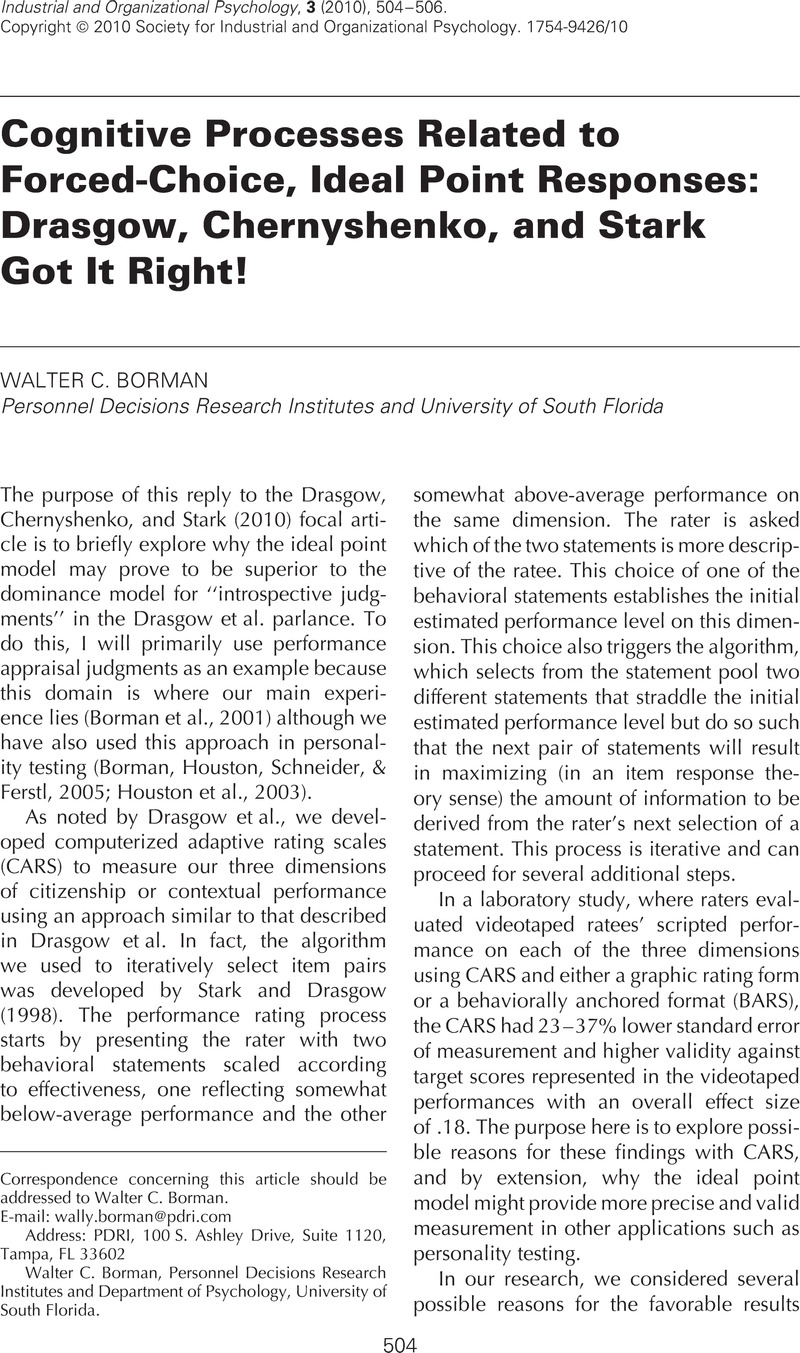Crossref Citations
This article has been cited by the following publications. This list is generated based on data provided by Crossref.
Drasgow, Fritz
Chernyshenko, Oleksandr S.
and
Stark, Stephen
2010.
Improving the Measurement of Psychological Variables: Ideal Point Models Rock!.
Industrial and Organizational Psychology,
Vol. 3,
Issue. 4,
p.
515.



